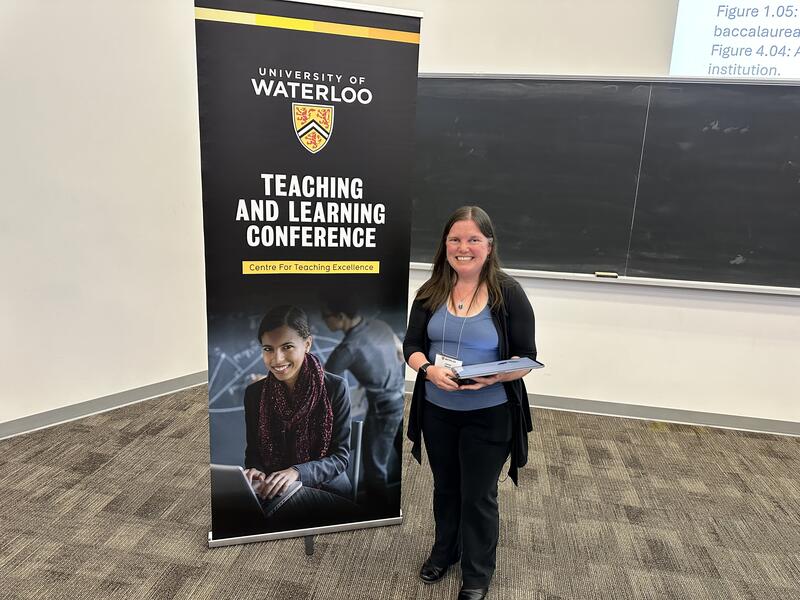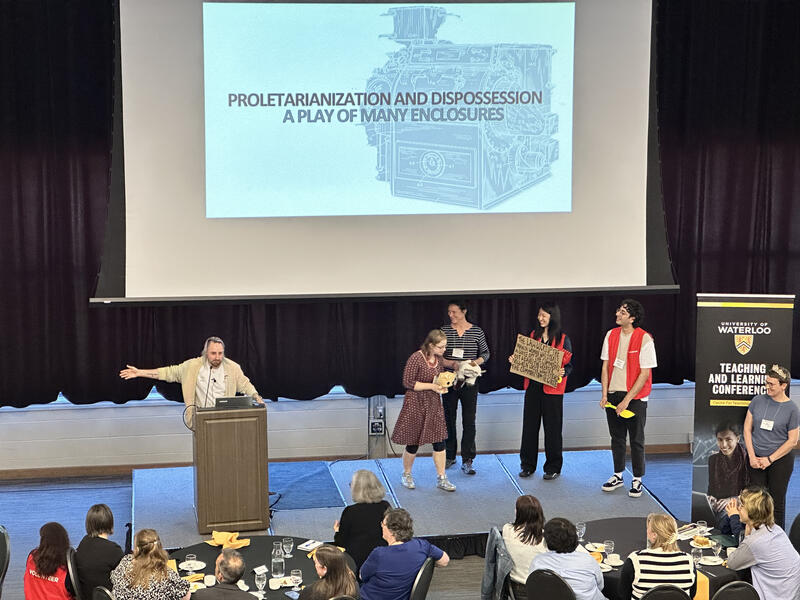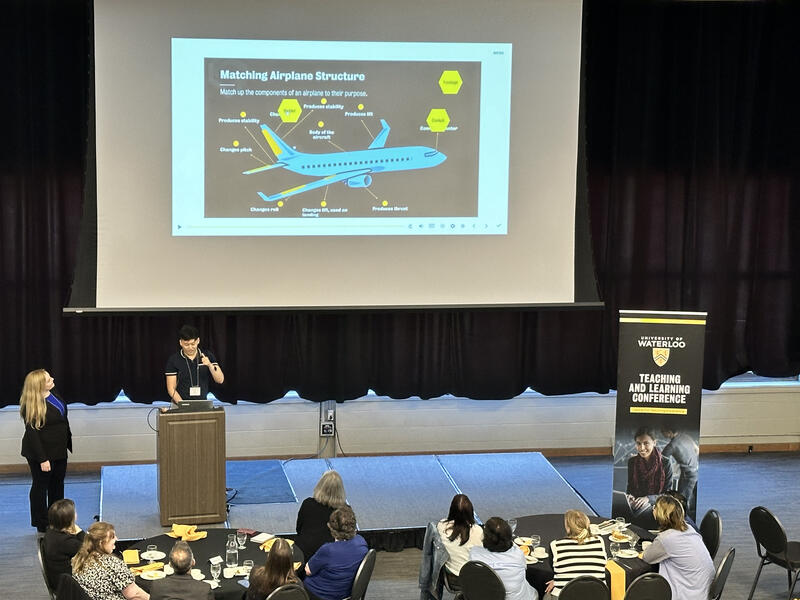
Sparking and sustaining engagement for student success
Waterloo’s annual teaching and learning conference reenergizes faculty in their quest to stimulate student curiosity

Waterloo’s annual teaching and learning conference reenergizes faculty in their quest to stimulate student curiosity
By Darren McAlmont University RelationsThe University of Waterloo recently wrapped the 15th annual Teaching and Learning conference — one of the largest events dedicated to teaching and learning in higher education in Ontario.
Held across two days with 16 online sessions, 50 presentations, six panels, five workshops and 17 posters, sessions covered topics on generative AI, engaging large classes, engaging first-year students, feedback, and integrating undergraduate and graduate students in course design.
The conference serves as a remarkable reminder of Waterloo’s commitment to teaching excellence and demonstrates how deeply passionate our educators are about preparing students to be innovators and solve some of society’s toughest problems through engaged, experiential learning.
“As one of our flagship events, we’re pleased to celebrate the conference’s 15th anniversary. The longstanding and increasing interest in this event are heartening and reflect a commitment to outstanding teaching and learning at Waterloo,” said Dr. Donna Ellis, director of the Centre for Teaching Excellence (CTE).
“We’re also seeing increased involvement from other institutions. This year, we had attendees coming from 18 different post-secondary institutions across Canada and even a few from international universities,” added Brianna Bennett, educational research associate in the CTE.
In a post-COVID-19 world, many educators have reported that students are not as engaged as pre-pandemic cohorts, and as a community of curious problem solvers, the organizers of this year’s conference set out to determine how students and instructors perceive engagement.
As a result, this year’s conference focused on engaging students in their own learning, piquing their curiosity and preparing them for societal complexities.
Dr. Jessie Moore, director of the Center for Engaged Learning at Elon University, delivered the keynote address in an interactive talk focused on three key practices for fostering equitable engaged learning in the classroom: facilitating professional relationships, developing feedback cultures, and promoting integration and transfer of knowledge and skills.

Keynote speaker: Dr. Jessie Moore
Moore shared that the three key practices, when explored together, spark engaged learning by centring students’ experiences and building on them within our courses and other learning contexts. “These key practices also sustain engaged learning by preparing students to adapt and apply their integrated knowledge and experiences as they continue their journeys through degree programs and professional careers,” she said.
Dr. Craig Fortier, associate professor of Social Development Studies at Renison University College at Waterloo, narrated an intriguing demonstration that showed how they engaged their students through an interactive play where the students themselves become the players. Monarchs, nobles, peasants, merchants and livestock come alive through Fortier’s adaptation of Karl Marx's concept of accumulation.
“Filled with real-life props and comedic interludes, students come to gain a greater understanding of the process of dispossession and proletarianization at the heart of accumulation, and begin to recognize these processes as familiar, though in a different form, in today's global economy,” they said.

Dr. Craig Fortier at podium with volunteers playing various parts on stage
In the presentation that followed titled Gamification, Group Interaction and Learner Engagement, Dr. Suzanne Kearns, associate professor and director of the Waterloo Institute for Sustainable Aeronautics, at Waterloo, demonstrated how she uses artificial intelligence and gamification to spark interaction and promote learner engagement in her Fundamentals of International Aviation course.
Asking for a volunteer from the audience to take the lead on dragging and dropping icons to match the different parts of an airplane, the entire room erupted with chatter as they shouted the answers to the volunteer to help solve the puzzle. “This is a little of what I do to try to engage my students in a big classroom,” she said. “We're trying to think about learning being real and not just talking at students. We’re trying to get them to think about how the real challenge is actually managed.”

Dr. Suzanne Kearns to the left with volunteer at the podium
When asked to comment on the success of this year’s conference, Dr. Annik Bilodeau, conference co-chair and educational developer in the CTE said “I’m thrilled with the response we received from faculty and staff members. We received an unprecedented number of proposals this year, and the theme of engagement clearly struck a chord with our Waterloo community. I look forward to doing this again next year.”
This year’s Teaching and Learning Conference demonstrates Waterloo’s commitment to not only educating the next generation of talent, but we also recognize the importance of creating interdisciplinary learning spaces for our faculty and researchers to learn from one another as they help to shape leaders of the future.

Read more
Here are the people and events behind some of this year’s most compelling Waterloo stories

Read more
It Started in Waterloo: An Astronaut's Journey into the Universe of Innovation, narrated by Chris Hadfield, highlights the University of Waterloo’s role in igniting innovation within the region and beyond.

Read more
Researchers awarded funding to investigate ecology, climate change, repatriation, health and well-being through cultural and historical lens
The University of Waterloo acknowledges that much of our work takes place on the traditional territory of the Neutral, Anishinaabeg, and Haudenosaunee peoples. Our main campus is situated on the Haldimand Tract, the land granted to the Six Nations that includes six miles on each side of the Grand River. Our active work toward reconciliation takes place across our campuses through research, learning, teaching, and community building, and is co-ordinated within the Office of Indigenous Relations.